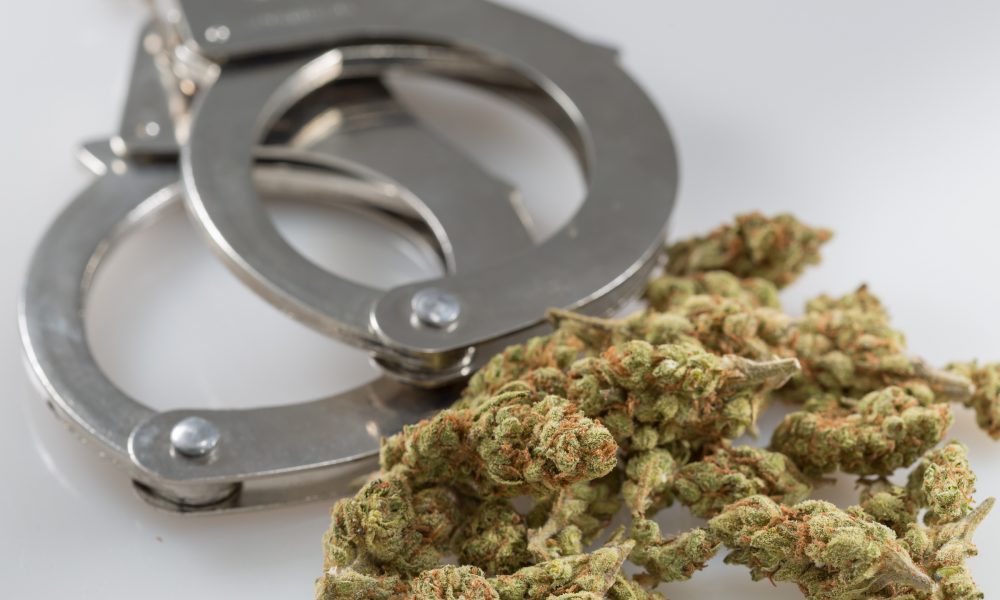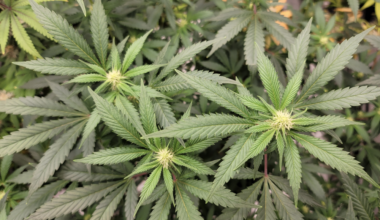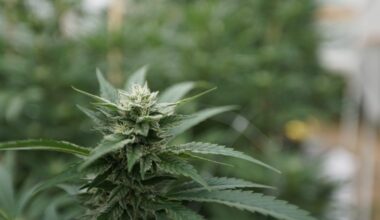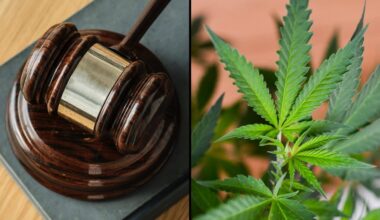The White House says it is actively looking into another case of a U.S. citizen who is being held in Russia over a marijuana-related offense to see if the administration can secure his release.
While there’s been ample coverage of WNBA star Brittney Griner’s arrest in Russia over possession of vape cartridges that contained cannabis oil, which she recently pleaded guilty to, a reporter pressed a senior White House official on Monday about a “very similar” situation that American teacher Mark Fogel has found himself in.
Fogel was arrested in Russia in August 2021 after authorities allegedly found about 17 grams of marijuana concealed in his lugged. A court sentenced him to 14 years in prison earlier this year, describing the offense as “large-scale” smuggling.
Like Griner, Fogel says that he’s a medical cannabis patient in the U.S.—but that apparently has not earned him leniency in the Russian judicial system. Unlike Griner, however, Fogel has not been classified by the State Department as a “wrongfully detained” person, which typically escalates diplomatic engagement to secure their release. Fogel also formerly worked as staff at the U.S. Embassy in Moscow, which could have entitled him to diplomatic immunity at the time.
At a Monday briefing that centered around a new Biden executive order on bringing American hostages back to the U.S. and wrongful detention policy, a reporter asked senior administration officials why the cases were being classified differently given that Fogel’s “conviction is for medical marijuana, and it seems very similar to the Griner case,” according to a White House transcript of the call.
The first unnamed official to reply said that they wouldn’t comment on the specific case because it’s ongoing and referred the journalist to the Levinson Act, which is the standard upon which “wrongful detention” designations are made.
As State Department spokesperson Ned Price explained in May, officials take into account 11-point criteria when determining whether a given case amounts to a wrongful detention. For example, if the U.S. has reason to believe that due process is being impaired, that the person was arrested solely because they are a U.S. national or that they are innocent of the stated charges, that would warrant a wrongful detention designation.
It remains unclear what bucket Griner fits into in that respect, but so far Fogel’s case is not officially considered a wrongful detention like the basketball player’s is.
Another administration official said on Monday that “we never take a case and put it away,” and the government is continually gathering evidence to make an informed designation. That includes Fogel’s situation.
“On the Fogel case, I probably shouldn’t talk about any cases that are ongoing,” the official said. “We’ve been looking at that for a while now. I spent a few hours on the Fogel case just last week trying to get more information on it. So it’s ongoing and active; we’re looking at it. But I’d rather not go into any more details on specific cases.”
Meanwhile, Griner remains an active point of focus for the administration. The basketball player, whose lawyer recently provided the Russian court with evidence that she was a registered medical cannabis patient in Arizona, pleaded guilty to the possession charge, which could carry a sentence of up to 10 years in prison.
Russian officials have disputed the idea that Griner’s arrest was wrongful, and a spokesperson for the country’s foreign minister went so far as to accuse the U.S. of hypocrisy given that it also continues to criminalize people over marijuana possession. Advocates have argued that the country might be better positioned to advocate for her release if cannabis wasn’t federally prohibited.
But the circumstances around the case are complicated, especially in light of the formal admission of guilt. Russia has taken a particularly strong stance against reforming cannabis policy at the international level through the United Nations. And it condemned Canada for legalizing marijuana nationwide.
The deputy of Russia’s Ministry of Foreign Affairs said in March that legalization efforts in the U.S. and Canada are matters “of serious concern for us,” according to a social media post from the office’s official account. “It is worrisome that several Member States of the [European Union] are considering violating their drug control obligations.”
Cory Booker And Rand Paul Bill Would Force DEA To Let Patients Use Psychedelics And Marijuana
Medical Disclaimer:
The information provided in these blog posts is intended for general informational and educational purposes only. It is not a substitute for professional medical advice, diagnosis, or treatment. Always seek the advice of your physician or other qualified healthcare provider with any questions you may have regarding a medical condition. The use of any information provided in these blog posts is solely at your own risk. The authors and the website do not recommend or endorse any specific products, treatments, or procedures mentioned. Reliance on any information in these blog posts is solely at your own discretion.







